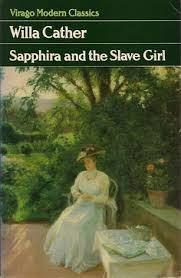 I have been very remiss in not showing you a photo of the chair Mr Litlove made me for my birthday. Yes, I know what you are thinking: how many more chairs can be deemed anniversary gifts before there is no more room in the house? A very good question, my friends. The answer: not many.
I have been very remiss in not showing you a photo of the chair Mr Litlove made me for my birthday. Yes, I know what you are thinking: how many more chairs can be deemed anniversary gifts before there is no more room in the house? A very good question, my friends. The answer: not many.
But in the meantime, I’ve always wanted a rocking chair and now I have one. We’ve been unofficially calling it the penguin chair because it just has that flippered look about it. One misconception I’ve been harboring about rocking chairs is that they have their own momentum. Well, they sort of do, but the experience is akin to being on a garden swing. You need to put a little kinetic energy in to keep going. I do think it’s the perfect chair for listening to audio books. I can’t knit as an accompanying activity, so that option is out of the question, but I can steeple my fingers and nod wisely with the best of them.
 Now, some more books and let’s plunge into controversy with Willa Cather’s Sapphira and the Slave Girl. Cather is one of my all-time favorite authors, and at the start of the year I had a re-reading session with her novels. I read The Professor’s House and A Lost Lady again, which are both flawless masterpieces to me. Sapphira is Cather’s last novel, published in 1940 when she was tired and bitter, nostalgic for the past, horrified by the war in Europe and suffering a chronic wrist injury that prevented her from writing in comfort. Maybe for these reasons it’s a darker novel than many, although Cather never loses touch with the beauty of nature and the innate potential for compassion in her characters. It’s set in Virginia way back in the 1850s and concerns the household of local mill owner, Henry Colbert. His aristocratic wife came to him at their marriage with black slaves from her homestead, and although Henry is deeply uncomfortable with slavery, he understands that this is how his wife manages domesticity. He can’t upset the apple cart to the extent of turning the slaves free (in 1850, he’s not sure where they’d go), and so his intention is to treat his people with as much generosity and kindness he can muster, and ensure their lives with him are good.
Now, some more books and let’s plunge into controversy with Willa Cather’s Sapphira and the Slave Girl. Cather is one of my all-time favorite authors, and at the start of the year I had a re-reading session with her novels. I read The Professor’s House and A Lost Lady again, which are both flawless masterpieces to me. Sapphira is Cather’s last novel, published in 1940 when she was tired and bitter, nostalgic for the past, horrified by the war in Europe and suffering a chronic wrist injury that prevented her from writing in comfort. Maybe for these reasons it’s a darker novel than many, although Cather never loses touch with the beauty of nature and the innate potential for compassion in her characters. It’s set in Virginia way back in the 1850s and concerns the household of local mill owner, Henry Colbert. His aristocratic wife came to him at their marriage with black slaves from her homestead, and although Henry is deeply uncomfortable with slavery, he understands that this is how his wife manages domesticity. He can’t upset the apple cart to the extent of turning the slaves free (in 1850, he’s not sure where they’d go), and so his intention is to treat his people with as much generosity and kindness he can muster, and ensure their lives with him are good.
Sapphira’s relationship to her slaves is quite different. Although we understand that she has been, across her lifetime, a good and generous mistress, just lately a few distressing problems have soured her outlook. First of all, Sapphira has recently become crippled with dropsy – extremely swollen ankles – and must deal with both physical restriction and pain. As a lady she bears it stoically, but it’s not helping her temper. Added to the humiliation of bodily woes, she suspects that her pretty black maid, Nancy, is having an affair with her husband. Now, no such thing is taking place. Henry admires Nancy and he has respect for the attention she brings to her chores. There may be something a tad guilty lurking in the back of his mind, which is why he can’t bring himself to act when he realises a serious problem exists between the women. But Henry isn’t much of an instigator at the best of times. So, lack of communication between husband and wife is consolidated by Sapphira’s jealous mind with suspicion, and the indignity and embarrassment of encroaching old age. Not content with chiding and scolding Nancy and smacking her with a hairbrush at the least opportunity, Sapphira decides to act out in a far worse way.
She contacts the family rake and invites him for a lovely long stay. Naturally, said rake finds Nancy extremely alluring and, since she’s a slave and readily available to him, he’s determined to satisfy his lust. Poor Nancy is in a terrible position. If she becomes pregnant she’ll be thrown out, but how can she avoid the unwelcome attentions of an arrogant, entitled white master? Well, as it turns out, Sapphira and Henry have a daughter, Rachel Blake, and Rachel can’t abide slavery:
It was the owning that was wrong, the relation itself, no matter how convenient or agreeable it might be for master or servant. She had always known it was wrong. It was the thing that made her unhappy at home and came between her and her mother. How she hated her mother’s voice in sarcastic reprimand to the servants! And she hated it in contemptuous indulgence.
Rachel sets out to help Nancy, only it will come at a heavy price for her.
Now here we run into the controversy. This seems to me to be a pretty enlightened tale for 1940, and it would be a humanitarian miracle for 1850. But the criticism that I’ve read of it says it’s still not good enough for the new millennium. The thrust of the story is entirely about the awful consequences that can occur when some people believe they have absolute power over others. But in the general areas of the narrative, there’s enough to offend the sensibilities of some. The term ‘darkies’ is used occasionally. When the slaves are all finally freed, one goes to the bad, which I’ve seen stated as cause for concern. There’s a general sense of the primitive in the descriptions of the servants. I suppose if you have delicate sensitivities in this area, then maybe it’s better to read something else. But it seems to me that if you open a newspaper, there are far worse examples of racism to be had in the world today than in this book. If you’re okay with historical fiction and its vicissitudes, then it’s worth reading. Myself, I’d rather not miss out on the message that even good people can be corrupted by a fatal combination of misguided entitlement and their own insecurities. In fact, it seems to me vital that such a message be heard right here and now. It seems essential to me to read books like this, flaws and all, to see how much has changed, and how little.
Well I have wittered on so long that once again I’ve used up my thousand words with many more books still to be discussed. Hope to come visiting you all soon, too, and see what you’ve been reading.
Advertisements